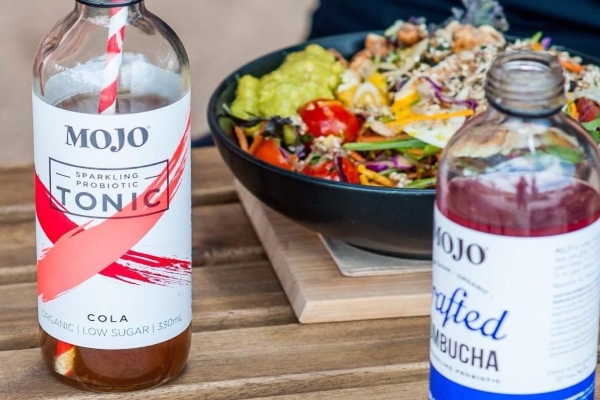Prevailing health concerns, the sugar tax and increasing media criticisms has placed huge pressure on the likes of Coca-Cola. In a bid to survive the new sugar-sensitive landscape, Coca-Cola has attempted to diversify their portfolio away from their core sugary range.
The latest venture in this strategic play for Health & Wellness is the acquisition of Australia’s Organic & Raw Trading Co., which is the producer of MOJO Kombucha drinks.
Kombucha is a relatively new kid on the beverage block; a naturally fermented, live culture drink containing antioxidants, probiotics and live bacteria that provide multiple health benefits, including superior microbiome health. In Australia, kombucha is the fastest growing beverage sector, whilst in the US, retail sales of refrigerated kombucha and other fermented beverages grew a huge 37.4% to $556 million in 2017 (KombuchaKon). With this emerging category on the cusp of the mainstream, this premeditated acquisition is a progressive move by Coca-Cola.
Diversifying the Coca-Cola portfolio is also evident in other acquisitions such as the investment in sports drink brand Bodyarmor, coconut water brand Zico, and by moving into talks with Canadian cannabis producer Aurora Cannabis. These acquisitions are an attempt to shift the image of Coca-Cola towards one of a total beverage company, offering drinks for all occasions and a play for relevance amongst the ever important millennial demographic.
So what is the branding implication here? The kombucha and functional drinks economy is clearly developing at a fast rate and brands that are less millennially-focused need to consider how they can learn by Coca-Cola’s example in a bid to maintain brand relevance. Coca-Cola has realised that as consumer preferences shift to healthier beverage options, it is critical for them to reduce revenue dependence on carbonated soft drinks. The real branding win comes from being pioneers of new beverages, trends, and catering to multiple consumer need states.
As for the wider beverage industry as a whole, the reduction of sugar, the rise of functional drinks and consumer desire for new flavours and experiences is ever increasing, and needs to be taken into account for long-term brand strategy. The industry must be able to adapt away from the core sugary soda offering that was once king, and step into the realms of probiotics, reduced calories and nitro-coffees.
Venturing into new categories and reinventing a brand such as Coca-Cola is a marathon not a sprint, but entry into the kombucha category is a great kick off the starting block.


